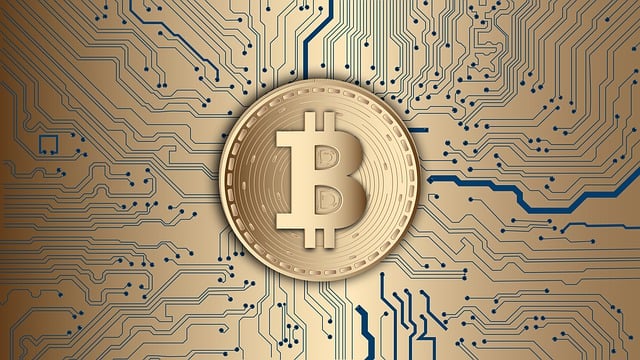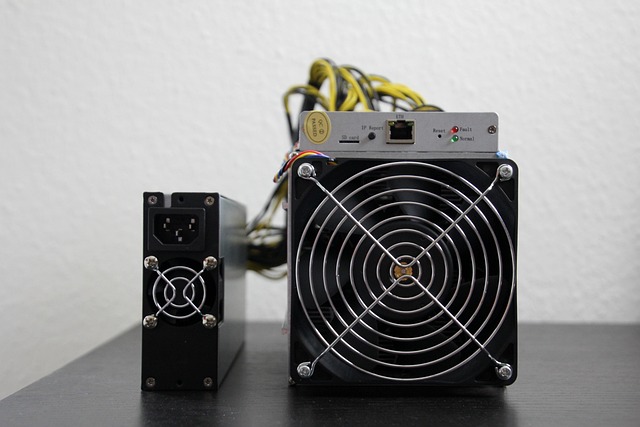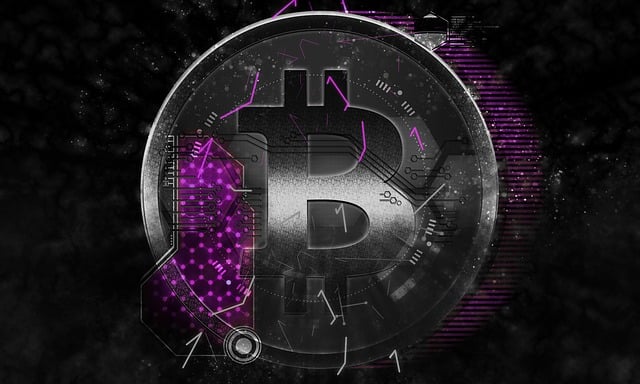The rapid growth of Decentralized Finance (DeFi) faces significant regulatory challenges due to its decentralized nature, lacking a central authority. Traditional regulations struggle to adapt to the complex web of smart contracts and peer-to-peer interactions in DeFi, complicating consumer protection, money laundering prevention, and fraud combat. Global cooperation is essential to harmonize legal frameworks, as jurisdiction across international borders adds complexity. Embracing technological advancements like blockchain and AI can enhance regulatory oversight and risk management, fostering a more robust DeFi ecosystem. Clear guidelines, collaboration between regulators and industry, and adaptive frameworks are key solutions for navigating regulatory challenges in DeFi and enabling its sustainable growth.
In the dynamic realm of Decentralized Finance (DeFi), understanding default implications is paramount as we navigate its decentralized nature. This article explores the intricate dance between DeFi’s innovative spirit and regulatory constraints, focusing on key areas such as governance, risk management, legal uncertainty, and technological advancements. We delve into the unique challenges posed by DeFi’s distributed structure, highlighting regulatory gaps and proposing solutions to shape a robust future framework while addressing pressing issues like default in this burgeoning space.
- Understanding DeFi's Decentralized Nature and its Implications for Regulations
- Identifying Key Regulatory Challenges in the Decentralized Finance (DeFi) Space
- The Impact of Lack of Central Authority on Governance and Risk Management
- Addressing Legal Uncertainty: Jurisdiction, Compliance, and International Cooperation
- Technological Innovations and Their Role in Overcoming Default Risks
- Potential Solutions and Future Outlook for Regulatory Frameworks in DeFi
Understanding DeFi's Decentralized Nature and its Implications for Regulations

The decentralized nature of Decentralized Finance (DeFi) presents both opportunities and significant regulatory challenges. Unlike traditional financial systems, DeFi operates on blockchain technology, eliminating the need for intermediaries like banks. This democratizes access to financial services, fostering inclusivity and transparency. However, this very decentralization makes it difficult for regulators to monitor and control activities within the ecosystem. Traditional regulatory tools, designed for centralized institutions, may not be effective or efficient in navigating the complex web of smart contracts and peer-to-peer interactions that define DeFi.
Regulatory challenges in DeFi include ensuring consumer protection, combating money laundering, and preventing fraud. The lack of a central authority makes it challenging to enforce compliance standards and resolve disputes. As DeFi continues to evolve, regulators worldwide are grappling with how best to adapt existing frameworks or create new ones to address these issues without stifling innovation. Balancing the need for oversight with the principles of decentralization remains a key focus as we navigate the regulatory landscape in this nascent sector.
Identifying Key Regulatory Challenges in the Decentralized Finance (DeFi) Space

In the fast-evolving landscape of Decentralized Finance (DeFi), identifying and addressing regulatory challenges is paramount for its sustainable growth. The decentralized nature of DeFi platforms presents unique hurdles for traditional regulatory frameworks, as they often struggle to keep pace with innovative financial products and services that bypass centralized intermediaries. Key regulatory challenges in DeFi include ensuring consumer protection, combating money laundering and terrorism financing, and establishing clear jurisdiction and accountability for smart contracts and decentralized exchanges.
These challenges are compounded by the global, borderless nature of blockchain technology, which allows for anonymous participation and makes it difficult to enforce regulatory compliance. Additionally, the lack of centralized authorities in DeFi means that any regulatory intervention must be carefully balanced to avoid stifling innovation while still protecting investors and maintaining financial stability. Addressing these regulatory challenges requires a collaborative effort between industry stakeholders, regulators, and policymakers worldwide to develop adaptable frameworks that can effectively oversee the evolving DeFi ecosystem.
The Impact of Lack of Central Authority on Governance and Risk Management

The absence of a central authority in decentralized finance (DeFi) presents unique regulatory challenges. Traditional financial systems rely on centralized institutions to enforce regulations, mitigate risks, and ensure compliance. However, DeFi platforms operate on blockchain technology, creating a distributed network with no single entity in charge. This lack of oversight introduces complexities when it comes to governing and managing risks effectively.
Without a central authority, ensuring fair practices, protecting investors, and maintaining stability becomes more difficult. Regulatory challenges include adapting existing laws to the decentralized nature of DeFi, establishing consensus on governance models, and creating mechanisms for dispute resolution. The distributed structure also makes it harder to implement quick risk management strategies, as coordinated actions are hindered by the lack of a single decision-making body.
Addressing Legal Uncertainty: Jurisdiction, Compliance, and International Cooperation

The landscape of decentralized finance (DeFi) is marked by rapid innovation and global reach, but it also faces significant regulatory challenges in navigating complex legal territories. One of the primary hurdles is addressing uncertainty surrounding jurisdiction. As DeFi platforms operate across borders, determining which laws apply and where violations occur can be intricate. This complexity arises from the nature of blockchain technology, which transcends traditional geographic boundaries.
International cooperation plays a pivotal role in mitigating these regulatory challenges. Harmonization of legal frameworks and shared understanding of DeFi’s unique characteristics are essential. Collaboration between jurisdictions can foster a consistent approach to compliance, ensuring that innovative DeFi projects adhere to global standards while encouraging legitimate operations. By working together, nations can establish clear guidelines for licensing, oversight, and dispute resolution, thereby reducing ambiguity and fostering trust in the DeFi ecosystem.
Technological Innovations and Their Role in Overcoming Default Risks

Technological innovations play a pivotal role in tackling default risks within the decentralized finance (DeFi) space, which faces significant regulatory challenges. Blockchain technology, at the heart of DeFi, provides a transparent and secure framework for managing financial transactions. Smart contracts, for instance, automate processes, ensuring that terms are executed accurately without relying on intermediaries. This reduces the risk of human error or fraudulent activities, commonly associated with traditional financial systems.
Furthermore, advancements in artificial intelligence (AI) and machine learning offer sophisticated risk assessment tools. These technologies can analyze vast datasets to predict potential defaults more accurately. By identifying patterns and anomalies, AI algorithms can provide real-time insights, enabling better decision-making and mitigating risks. As DeFi continues to evolve, embracing these innovations will be crucial in navigating the complex landscape of regulatory challenges and fostering a more robust and secure financial ecosystem.
Potential Solutions and Future Outlook for Regulatory Frameworks in DeFi

Addressing regulatory challenges in DeFi is paramount for its growth and mainstream adoption. Potential solutions include developing clear guidelines that keep pace with technological advancements, fostering collaboration between regulators and industry stakeholders, and implementing robust risk management frameworks. Decentralized finance platforms can enhance transparency by adopting auditable smart contracts and ensuring compliance with existing laws, such as anti-money laundering (AML) and know your customer (KYC).
Looking ahead, a future outlook of regulatory frameworks in DeFi should be adaptive and flexible. As the sector evolves, regulatory bodies must continually update their approaches to keep up with innovative business models and risk profiles. This could involve adopting technology like blockchain analytics to monitor transactions and identify potential risks more effectively. Ultimately, striking a balance between innovation and regulation is crucial for creating a sustainable and secure DeFi ecosystem.
The decentralized nature of Decentralized Finance (DeFi) presents unique regulatory challenges, as evidenced by the absence of a central authority and varying jurisdictional frameworks. This article has explored these complexities, highlighting the impact on risk management and the need for international cooperation to address legal uncertainty. By examining technological innovations and potential solutions, we glimpse a future where robust regulatory frameworks can mitigate default risks in DeFi, fostering a more secure and inclusive financial ecosystem. Overcoming these regulatory challenges is paramount to unlocking DeFi’s full potential while safeguarding users from potential pitfalls.
